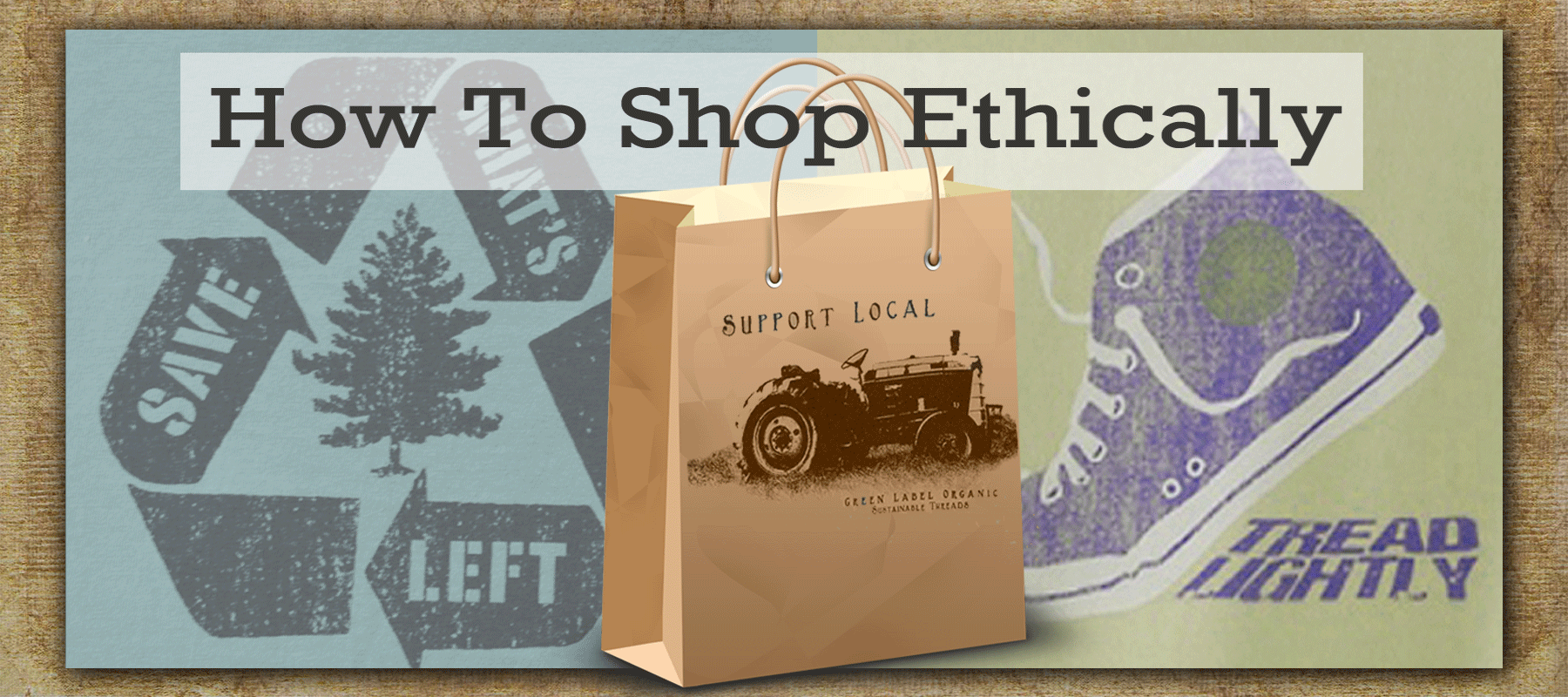- Blog
- Contact Us
FREE SHIPPING on orders over $50
How to Shop Ethically
Posted by Green Label Organic Team on Nov 29th 2022

From sportswear to businesswear, the global apparel market encompasses everything that consumers wear and use as clothing. Most everyone in westernized society partakes in at least some portion of the apparel supply chain. In fact, the retail fashion industry accounted for $1.5 trillion U.S. dollars in 2021 and is forecasted to increase to $2 trillion by 2026.While this is good news for apparel manufacturers and retail fashion businesses, it’s not great news for the planet. The fashion industry has some significant negative effects on the environment and it’s more important than ever to shop ethically and consider the source you are purchasing clothing from.
The Negative Environmental Impacts of Retail Fashion
The global apparel manufacturing market is the fifth largest industry on the planet. Unfortunately, it also comes with some detrimental environmental impacts. Utilizing more energy than shipping and aviation industries combined, the fashion industry is responsible for 10% of the planet’s green-house gas emissions and accounts for 20% of global wastewater accumulation. Additionally, the byproducts of apparel manufacturing have some nasty environmental consequences. The textile dyeing process utilizes toxic chemicals that leach into water sources. Textile dyeing accounts for 17-21 percent of industrial water pollution.
Many consumers are also naive to the amount of plastic found in the clothes they wear. Spandex, acrylic, nylon, and polyester are synthetic fabrics made from plastic. Synthetic fabrics are used to make many of the industry’s trendiest athleisure clothing. However, when synthetic fabrics are washed, they shed fragments of plastic, microplastics, into waterways. The United States Geological Survey (USGS) holds synthetic fibers accountable for 71% of the total number of microplastic particles found in samples of river water.
3 Simple Ways to Shop Ethically
While it may seem that there is no stopping the negative effects of big fashion, there are ways to easily implement ethical ways of shopping in our individual lives and homes. Here are three simple ways to make more ethical purchases.
1. Buy Organic
Colloquially coined as the world’s dirtiest crop, cotton is notorious for pest invasion and, to mitigate infestation, farmers dump $2-3 billion worth of pesticides annually. Cotton crops are responsible for 16% of all insecticides used worldwide. The cotton industry’s toxic agrochemicals contain hazardous carcinogens that are linked to birth defects, infertility, cancer, and more. In addition to a more ethical way to shop, consumers should strive to buy organic for the sake of their own health.
However, in a world throwing the term “organic” on almost everything, consumers need to consider the actual organic practices behind the goods they purchase. For example, when it comes to farming and food, many consumers believe that the USDA Organic stamp is second to none. However, upon further examination they would see that USDA certified organic foods may still have been grown with herbicides and pesticides that were “okayed” by the standard board.
When buying organic as an attempt to shop more ethically, consumers should try, to the best of their ability, to ensure that the product they’re purchasing was created with the most organic practices available. Purchasing organic goods means supporting increased biodiversity and trying to lower the number of toxic chemicals encountered on a daily basis.
2. Support Small Local Businesses
When you support small local businesses, you’re supporting your individual community. Not only does supporting local mean keeping your money within your neighborhood, it also means job creation. Michigan State University found that small local businesses are the largest employers nationally.
Another benefit of supporting mom & pop shops is the increased transparency that they provide. In comparison to corporate retail establishments, small businesses oftentimes have much less complex supply chains. Many of the products that small local businesses sell are likely created by local makers and use materials found in the surrounding area/s. And, a simplified local supply chain is beneficial for the environment as fossil fuel resources are reduced when goods have less distances to travel.
3. Consider Worker Conditions
The negative impacts of the global apparel market extend past detrimental effects on the planet. The garment industry also has negative social implications. A growing action of support for employees in the apparel industry is calling for improved working conditions. Extreme temperatures, harmful chemicals, and physical violence are just a few of the workplace hazards being brought to light. Some instances transcend unsafe working conditions to total violations of human rights. In 2020, two garment worker parents from Bangladesh were forced to sell their newborn baby after their wages couldn’t cover their hospital bills.
Initiatives like the Clean Clothes Campaign are working to uncover and ratify unsafe working conditions for apparel workers across the globe. It’s imperative that consumers consider the working conditions of employees at the businesses they purchase their apparel from.
Conclusion
Luckily, there is a way to ensure that the clothes you’re buying are made to ethical standards that you can get behind. Clothing that is certified by the Global Organic Textile Standard (GOTS) removes the guessing game behind shopping ethically in retail fashion. GOTS certification ensures:
- Textiles consist of at least 70% certified organic materials
- Fabric is colored with only approved dyes and colorants
- Chemical inputs are evaluated for biodegradability and toxicity
- Child labor is not used
- Worker employment is freely chosen
- Workplaces are free from discrimination
Green Label Organic (GLO) is a small organic clothing company specializing in GOTS certified t-shirts. GLO tees are made of super soft, GOTS certified ring spun cotton. With a deep respect for the environment and ethically produced fashion, GLO goods are produced in the USA and India. GLO designs provide positive, eco-friendly messages about the planet, fair trade, sustainability, and so much more.
To browse our full selection of t-shirts with a point of view, visit GreenLabelOrganic.com today!
